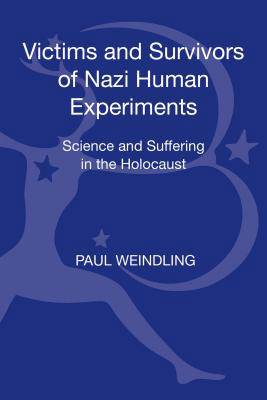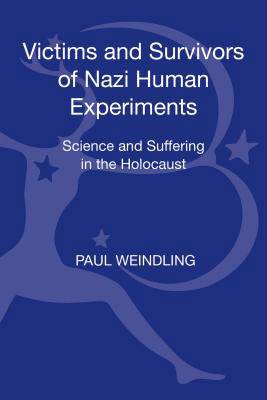
- Afhalen na 1 uur in een winkel met voorraad
- Gratis thuislevering in België vanaf € 30
- Ruim aanbod met 7 miljoen producten
- Afhalen na 1 uur in een winkel met voorraad
- Gratis thuislevering in België vanaf € 30
- Ruim aanbod met 7 miljoen producten
Zoeken
Victims and Survivors of Nazi Human Experiments
Science and Suffering in the Holocaust
Paul Weindling
Hardcover | Engels
€ 322,45
+ 644 punten
Uitvoering
Omschrijving
While the coerced human experiments are notorious among all the atrocities under National Socialism, they have been marginalised by mainstream historians. This book seeks to remedy the marginalisation, and to place the experiments in the context of the broad history of National Socialism and the Holocaust.
Paul Weindling bases this study on the reconstruction of a victim group through individual victims' life histories, and by weaving the victims' experiences collectively together in terms of different groupings, especially gender, ethnicity and religion, age, and nationality. The timing of the experiments, where they occurred, how many victims there were, and who they were, is analysed, as are hitherto under-researched aspects such as Nazi anatomy and executions. The experiments are also linked, more broadly, to major elements in the dynamic and fluid Nazi power structure and the implementation of racial policies. The approach is informed by social history from below, exploring both the rationales and motives of perpetrators, but assessing these critically in the light of victim narratives.
Paul Weindling bases this study on the reconstruction of a victim group through individual victims' life histories, and by weaving the victims' experiences collectively together in terms of different groupings, especially gender, ethnicity and religion, age, and nationality. The timing of the experiments, where they occurred, how many victims there were, and who they were, is analysed, as are hitherto under-researched aspects such as Nazi anatomy and executions. The experiments are also linked, more broadly, to major elements in the dynamic and fluid Nazi power structure and the implementation of racial policies. The approach is informed by social history from below, exploring both the rationales and motives of perpetrators, but assessing these critically in the light of victim narratives.
Specificaties
Betrokkenen
- Auteur(s):
- Uitgeverij:
Inhoud
- Aantal bladzijden:
- 336
- Taal:
- Engels
Eigenschappen
- Productcode (EAN):
- 9781441179906
- Verschijningsdatum:
- 12/02/2015
- Uitvoering:
- Hardcover
- Formaat:
- Genaaid
- Afmetingen:
- 155 mm x 234 mm
- Gewicht:
- 635 g

Alleen bij Standaard Boekhandel
+ 644 punten op je klantenkaart van Standaard Boekhandel
Beoordelingen
We publiceren alleen reviews die voldoen aan de voorwaarden voor reviews. Bekijk onze voorwaarden voor reviews.








